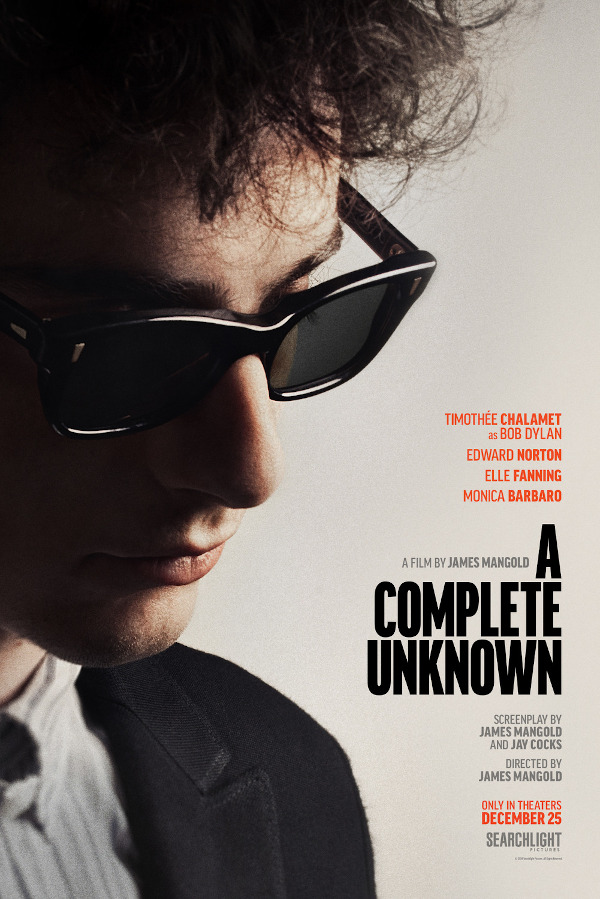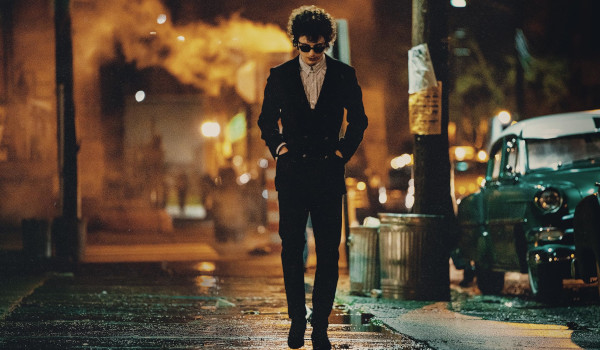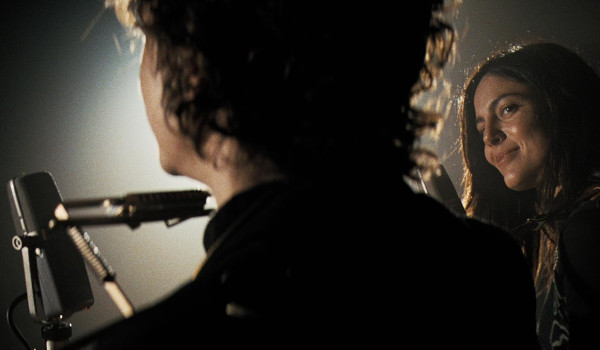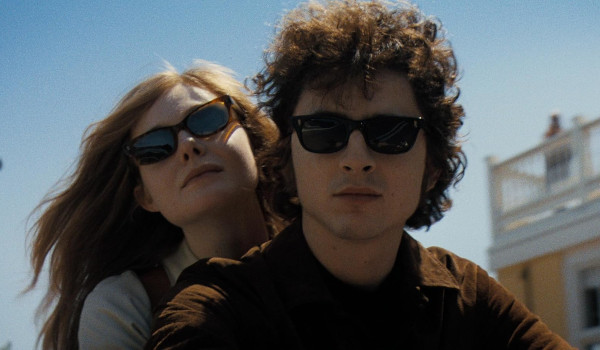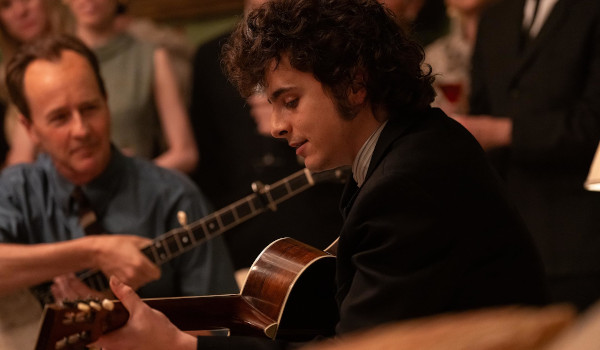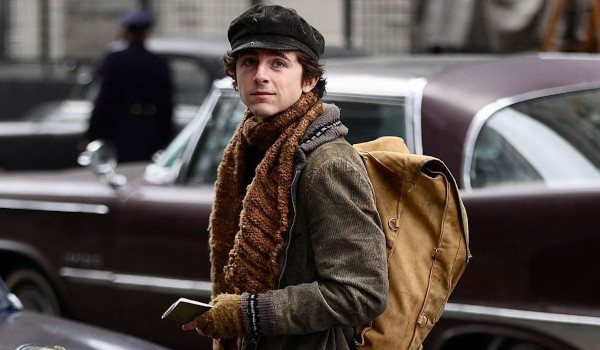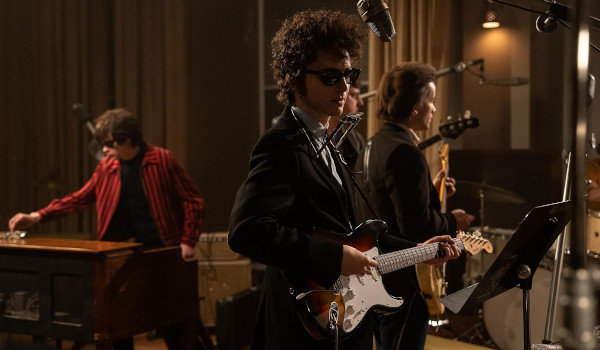- Title: A Complete Unknown
- IMDb: link

“You’re kind of an asshole, Bob.”
There’s a scene between Bob Dylan (Timothée Chalamet) and Joan Baez (Monica Barbaro) after their first night together that sums up the themes of the movie succinctly. Returning to music over her, while also offering an offhand dismissal of her work, Bob still brings her back to his bed through his songwriting. In a nutshell, just as Ms. Baez so eloquently puts it, Bob is indeed an asshole. However, he’s one hell of a talented asshole.
After tackling the likes of Johnny Cash, P.T. Barnum, Carroll Shelby and Ken Miles, in his latest biopic director James Mangold turns his camera on the American icon centered on his early rise as mainly a folk singer and the controversy surrounding his switch to electric guitars. Chalamet is perfect casting as an actor talented enough to perform more than three dozen of Dylan’s songs, more than half of which is collected on the official soundtrack to the film (all recorded live using time-appropriate vintage equipment), and still be likable enough when the harsher edges of the performer hit the harsh light of day.
The music is great, the film perfectly captures the feel of the time and place, and if Dylan is left as something of a moody misanthrope who few get close enough to know, that’s part of the point (as the title suggests). A Complete Unknown is worth the price of admission for the music and Chalamet’s performance alone, but, although he dominates the film, there’s plenty else worthy of note.
Edward Norton co-stars as Pete Seeger, largely responsible for discovering Bob and helping him find a home in folk and country music. Although from what we see in the film, Dylan bristled at being attempted to be kept in the box he saw as the folk music scene eventually leading to Dylan’s performance at the 1965 festival which closes the film. Scoot McNairy gives a far smaller, but no less important, performance as Woody Guthrie who was already fighting Huntington’s disease when Dylan first met him and sung him “Song to Woody.” And then there’s Boyd Holbrook as Johnny Cash who notably supported Dylan pushing the limits of what others thought was acceptable. We get a glimpse of the respect between the two men including Cash’s words backstage to Dylan in 1965.
We also get Elle Fanning as Sylvie Russo (based off Dylan’s real girlfriend Suze Rotolo) whose up-and-down relationship with Dylan wasn’t all that different than that with Baez. Each fed something to him, helping him grow in different ways, but, as we see over the course of the film, Dylan’s lady of choice was always his music. We see countless scenes of Dylan writing and performing to whoever will listen, including Sylvie in the early days long before his star began to rise. Sylvie could easily have been a thankless role, but Fanning helps bring the character to life as more than just Dylan’s girl.
Dylan’s relationship to Baez, which seems to come from a mutual appreciation of each other’s talent, often sparking after performing together, offers a nice contrast to the safer relationship with Sylvie. In the same vein, Barbaro’s performance helps bring another woman’s perspective to Bob, one who is far more likely to call out Mr. Dylan on his shit than Sylvie. While the film admits Dylan cared for them both, it doesn’t pull punches in how poorly he treated each of them at times. Bob Dylan is a complicated guy, and one hell of a talent one, and Marigold’s film captures that beautifully in a film that I’d pair with Inside Llewyn Davis for those looking to double-down on early 60s folk music.
Watch the trailer
